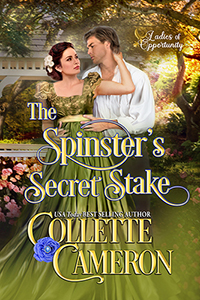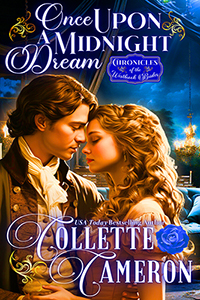Guest Author Regina Jeffers-Regency Era Court System
Giveaway too!
When I was writing my latest cozy mystery, The Prosecution of Mr. Darcy’s Cousin, I spent many hours in research on the Regency era court system for a long trial scene occurs within the book. Correct verbiage and procedures were important. I used such resources as P. D. James and T. A. Critchley’s The Maul and the Pear Tree (a history of the Ratcliffe Highway Murders); The Trial of James Thomas Earl of Cardigan Before the Right Honourable The House of Peers, In Full Parliament, For Felony, On Tuesday The 16th Of February 1841; and Charles Marsh Denison’s The Practice & Procedure of the House of Lords.
In the early 19th Century England, 80% of those charged with a crime were men, which was a sharp increase from the mid-1700s, up some 20%. Much of the change came from the perception that women did not commit serious crimes. Most crimes committed by women were handled through other agencies. Generally, women were brought forward for thefts, kidnapping, being involved with a brothel, coining, and offenses involved in childbirth (most dealing with abortions, concealing a birth, and infanticide). Men were most likely charged with rape, attempted rape, sexual offenses, robbery, sodomy, murder, etc. Notice that the “male” crimes were of a more violent nature, a perception inherited from classical ideology, Christian values, and contemporary medical views from the 18th Century. (Old Bailey)
http://www.oldbaileyonline.org/static/Gender.jsp#separatespheres
A jury trial was common point of law in England from the Middle Ages forward, but the early 1800s saw a sort of pother spearheaded by Robert Peel (who liberalized criminal law when he served as Home Secretary). According to Old Bailey Online, “He set about consolidating and simplifying statue law and consolidating the procedures for selecting jurymen. He also extended the provision of expenses for prosecutors and witnesses, and gave magistrates the power to bail the accused. His reforms were continued by the Whig government that came in to pass the Great Reform Act. Most notable among the Whigs’ legal reforms was the Prisoners’ Counsel Act (1836).”
http://www.oldbaileyonline.org/static/Trial-procedures.jsp
Some of the points of law for those brought before a Regency-based court were…
- It was the victim’s role to identify the culprit in a crime for there was no organized police force.
- Magistrates generally questioned those arrested in “rotation offices.”
- Magistrates would assign a prisoner over to the prison if the testimony warranted it.
- Magistrates also bound over witnesses for the prosecution.
- Magistrates did not seek confessions from the accused.
- Sessions for the City of London and for Middlesex preceded the court proceedings.
- Newgate Prison served London; New Prison served Middlesex; and Gatehouse Prison served Westminster.
- A grand jury decided whether the indictments were to be brought to trial.
- Grand juries had little training in the law and were often lacking in information.
- Prisoners were expected to plead “not guilty” before the court. This came about because if the prisoner confessed to the crime, the punishment was preset by law. There was no “wiggle room ” for extenuating circumstances.
- Juries heard several cases in one setting, customarily six to eight at a time. New juries were not called for each case.
- The juries delivered their verdicts after the trials were conducted. It was all the cases heard and then all the verdicts delivered. The jurors did not leave the room to confer; they simply huddled together. Men of some education (customarily tradesmen) set on jurors with enough regularity that they could advise the others on points of law based on their experience. After 1737, the jurors were seated together rather than on either side of the prisoners’
- Trials averaged only 30 minutes in length.
- There were separate juries for London and Middlesex. Because of the number of case in the early 19th Century, additional juries were added.
- Defendants were responsible in proving their innocence. Barristers could address points of law, but the accused was in charge of cross examining witnesses. The judges could also cross examine the witnesses.
- Witnesses summoned by the prosecution were required to attend the proceedings, but those for the defense were not.
- There were few routes to appeal at the time.
- A writ of error was possible only to the wording of the indictment or to irregularities in the court proceedings, but this was a VERY expensive move. It was not easy to achieve. (Old Bailey: Proceedings)
http://www.oldbaileyonline.org/static/Trial-procedures.jsp
The Prosecution of Mr. Darcy’s Cousin: A Pride and Prejudice Mystery
Fitzwilliam Darcy is enjoying his marital bliss. His wife, the former Elizabeth Bennet, presented him two sons and a world of contentment. All is well until “aggravation” rears its head when Darcy receives a note of urgency from his sister Georgiana. In truth, Darcy never fully approved of Georgiana’s joining with their cousin, Major General Edward Fitzwilliam, for Darcy assumed the major general held Georgiana at arm’s length, dooming Darcy’s sister to a life of unhappiness.
Dutifully, Darcy and Elizabeth rush to Georgiana’s side when the major general leaves his wife and daughter behind, with no word of his whereabouts and no hopes of Edward’s return. Forced to seek his cousin in the slews of London’s underbelly, at length, Darcy discovers the major general and returns Fitzwilliam to his family.
Even so, the Darcys’ troubles are far from over. During the major general’s absence from home, witnesses note Fitzwilliam’s presence in the area of two horrific murders. When Edward Fitzwilliam is arrested for the crimes, Darcy must discover the real culprit before the authorities hanged his cousin and the Fitzwilliam name knew a lifetime of shame.
BUY LINKS
Excerpt (Scene: The opening of the trial against Major General Edward Fitzwilliam.)
When instructed to report to the room set aside for witnesses for all the proceedings, Darcy refused, and he kept Georgiana with him. He would never permit his sister to sit in a room and fret over what was going on within the courtroom; she meant to support Edward in this matter, and Darcy meant for Georgiana to see it through to the end.
Moreover, in the gallery, Georgiana would be surrounded by family and friends rather than by strangers, and it was not as if either he or his sister would speak out against the major general. The proceedings would not sway their allegiances.
All matter of humanity packed the viewing area, and dread found a home in Darcy’s stomach.
“Fitzwilliam will be brought in with the other cases on the docket,” Darcy explained in soft whispers. “All the cases are heard before the jury and judges announce the verdicts. You will be exposed to more than Edward’s case today.”
Elizabeth squeezed the back of Georgiana’s hand.
“We shall be well, Mr. Darcy,” his wife assured as Georgiana nodded her understanding. “Mrs. Fitzwilliam and I discussed the possibilities.”
After an hour of waiting, the guards brought in the prisoners. In addition to Edward, there were two thieves—one accused of stealing from his master and the other of being a pickpocket, a third man charged with intent of rape, and a fourth accused of threatening behavior. Each prisoner was in chains. From where Darcy stood along the wall, he heard the countess gasp and Elizabeth sob.
Needless to say, the authorities anticipated the sensationalism of Edward’s case and kept the other proceedings short, while providing the public a taste of normalcy. Despite his disheveled appearance, the major general stood tall and proud and stone-faced. It pleased Darcy to observe how his cousin prepared mentally for the battle ahead: Darcy never knew more pride in the man’s connection; however, from the buzz of excitement, which brought a collective murmur from those in attendance, Darcy feared the worse could not be averted. Even the judges appeared apprehensive.
In a break with the customary order, the judges dispensed with the other four cases quickly, even meting out the punishments before opening the proceedings against the major general. The disruption from the normal added to the spleen gathering in Darcy’s throat. He glanced to his sister, who paled, but who appeared as stone-faced as her husband. Darcy’s heart went out to her; Georgiana entered her marriage with great hopes only to be brought low.
At length, only Edward remained from those accused of crimes. Darcy thought some in the crowd would depart after the judges excused the other cases, but it appeared more interested parties pressed into the space. However, when Mr. Jenkins, the prosecutor assumed his place before the room, silence reigned.
“Major General Edward Fitzwilliam was indicted by the magistrates’ court of Middlesex for the willful murder of Isles Vaughn, Sarah Vaughn and infant Drey on 5 October; the willful murders of Louis Thorne, Willow Thorne, and Mildred Winthrop on 9 October; and the willful murders of Theodore Weldon, Samuel Urick, and Fanny Urick on 17 October. At the time of the Coroner’s Inquisitions, Edward Fitzwilliam was not a suspect in the Vaughn or the Thorne case, no suspect being named; he was, however, a suspect in the cases after the Inquisition based on evidence from London’s citizenry.
“It is my duty as Counsel for the prosecution to lay before the court evidence to support the indictment against the prisoner at the bar.”
All eyes in the audience followed Darcy’s to where Edward stood erect and solemn countenanced.
“The crime of murder,” Jenkins continued, “is a crime against the laws of God and of men. England, as a God-fearing country abhors the deliberate taking of life and has decreed a punishment of death for those proved to have exacted harm upon another.
“The crime of murder rarely lends itself to witnesses; therefore, the prosecution will offer testimony of a more plausible nature: a series of circumstances, which lead clearly to the guilt of the prisoner at the bar.”
ABOUT REGINA
Regina Jeffers is an award-winning author of Austenesque, Regency, and contemporary novels. She is a retired English teacher and an often sought after consultant for media literacy and language arts.
Every Woman Dreams Blog reginajeffers.wordpress.com
Austen Authors Blog austenauthors.net
Regina Jeffers Website (excerpts, news and events, reviews, etc.) www.rjeffers.com
You may also find Regina at
Amazon Author Page http://www.amazon.com/Regina-Jeffers/e/B008G0UI0I/ref=sr_tc_2_0?qid=1435251740&sr=8-2-ent
Twitter @reginajeffers https://twitter.com/reginajeffers
Facebook https://www.facebook.com/pages/Regina-Jeffers-Author-Page/141407102548455
Pinterest https://www.pinterest.com/jeffers0306/
Google+ https://plus.google.com/s/regina%20jeffers
LinkedIn https://www.linkedin.com/pub/regina-jeffers/50/247/b09










I would like the book for the courtroom scenes if no other; however, I am sure the rest of the story is well done. I don’t read many Austen inspired stories but this one intrigues me. It sounds as though you did some detailed research.
I did, Nancy. I took some dramatic license, but I used those exceptions as part of the error in the trial.
I love your books Regina! Can’t wait to read this one. 🙂
Thank you for the kind words, Aleen. I appreciate your taking time to leave a comment.
You always have such fascinating history tidbits to share! I love that you spun this into your novel!
Many thanks, Suzan. It is difficult to get the facts right, but it is important. Although we all slip from time to time, I believe most authors attempt to maintain historical accuracy.
Fitzwilliam in CHAINS?!?!?! Omigosh, I would feel sick or faint. I’m glad Georgiana is surrounded by family and friends. Is Lizzy there too? What a nerve-wracking scene. Well done, you!
All prisoners were brought in in chains, June. Yes, Elizabeth is with Georgiana.
This is all very interesting and the excerpt is great!
Many thanks. This one turned into one of my favorite books.
The story sounds intriguing and I love the historical details. Thanks for sharing all your research, Regina!
I’m happy to share. It was amazing to me how we think of current court system in comparison to how things were in the early 1800s.